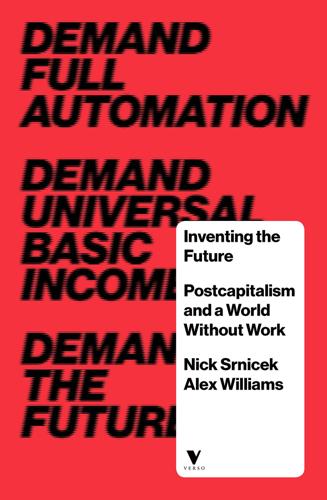
Inventing the Future: Postcapitalism and a World Without Work
by
Nick Srnicek
and
Alex Williams
Published 1 Oct 2015
Direct democracy, consensus and inclusivity all form part of horizontalism’s commitments to prefigurative politics, which aims to create in the here-and-now the world they would like to see. Prefigurative politics is a longstanding tradition on the left, from the anarchism of Kropotkin and Bakunin onwards, but it has only recently come to characterise the leading edges of left-wing politics. The earlier promise that, after the revolution, hierarchies and exclusions would evaporate was little consolation to the women and people of colour whose concerns were ignored by yet another white male leader. Rather than wait for a purported revolution, prefigurative politics attempts to instantiate a new world immediately – again relying on an implicit sense that immediacy is inherently superior to more mediated approaches.
…
The Zapatistas, for example, are permitted to exist in relative freedom simply because the state and capital do not see them as a threat.53 The moment a prefigurative space becomes a threat is the moment when repression weighs down on it, and when its fetishisation of horizontalism becomes a serious liability. Prefigurative politics, at its worst, therefore ignores the forces aligned against the creation and expansion of a new world. The simple positing and practising of a new world is insufficient to overcome these forces, as the repression faced by Occupy demonstrated.54 The immediate question that must be asked of any prefigurative politics is therefore: How can it be expanded and scaled up?55 Even granting the problematic assumption that most people would want to live as the Occupy camps did, what efforts might be possible to physically and socially expand these spaces?
…
Horizontalism rejects the project of hegemony as intrinsically domineering, putting forth an affinity-based politics in its stead.5 Rather than advocating an appeal to or takeover of the vertical power of the state, horizontalism argues for freely associating individuals to come together, create their own autonomous communities and govern their own lives. In broad terms, we can summarise these ideas in terms of four major commitments: 1.A rejection of all forms of domination 2.An adherence to direct democracy and/or consensus decision-making6 3.A commitment to prefigurative politics 4.An emphasis on direct action Embedded within this set of commitments is a series of problems that constrain and limit their potential in the struggle against global capitalism. Horizontalism’s focus on domination in all its forms is perhaps its signal contribution.7 Moving beyond the old left’s traditional focus on the state and capital, it emphasises the various ways in which other types of domination continue to structure society (racial, patriarchal, sexual, ableist, and so on).
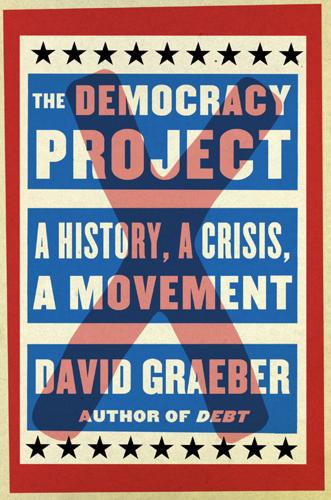
The Democracy Project: A History, a Crisis, a Movement
by
David Graeber
Published 13 Aug 2012
Our expectation was that democratic practices would spread, and, inevitably, adapt themselves to the needs of local organizations: it never occurred to us that, say, a Puerto Rican nationalist group in New York and a vegan bicycle collective in San Francisco were going to do direct democracy in anything like the same way. To a large degree, that’s what happened. We’d had enormous success transforming activist culture itself. After the Global Justice Movement, the old days of steering committees and the like were basically over. Pretty much everyone in the activist community had come around to the idea of prefigurative politics: the idea that the organizational form that an activist group takes should embody the kind of society we wish to create. The problem was breaking these ideas out of the activist ghetto and getting them in front of the wider public, people who weren’t already involved in some sort of grassroots political campaign.
…
From an anarchist perspective, direct democracy and direct action are—or ought to be—two aspects of the same thing: the idea that the form of our action should itself offer a model, or at the very least a glimpse of how free people might organize themselves, and therefore what a free society could be like. In the early twentieth century it was called “building the new society in the shell of the old,” in the 1980s and 1990s it came to be known as “prefigurative politics.” But when Greek anarchists declare “we are a message from the future,” or American ones claim to be creating an “insurgent civilization,” these are really just ways of saying the same thing. We are speaking of that sphere in which action itself becomes a prophecy. The original conception of OWS reflected this anarchist sensibility in several different ways.
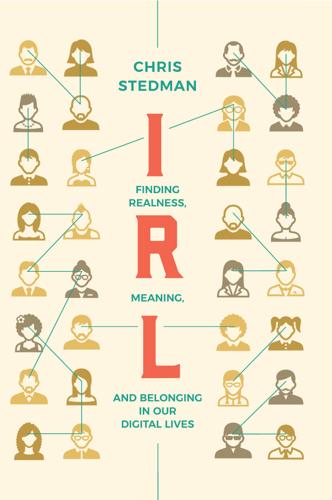
IRL: Finding Realness, Meaning, and Belonging in Our Digital Lives
by
Chris Stedman
Published 19 Oct 2020
But this process can actually help us reimagine the world together—one way digital play can cause us to feel more real. “Memes help us envision another world, a practice known as prefigurative politics,” writes An Xiao Mina in Memes to Movements. In other words, playfulness lets us experiment with and build narratives that we can then use to reshape the world around us. “In creating space for the imagination,” she argues, our digital play “can help motivate action.” Like memes or tabletop RPGs, our digital games are often about collaboratively reimagining the world. By enabling us to enter into prefigurative politics together, play can help us become who we want to be. On the one hand, it’s true for some that games are a space set apart from the rest of their activities, to play out something seemingly unrelated to the rest of their lives.

Utopia or Bust: A Guide to the Present Crisis
by
Benjamin Kunkel
Published 11 Mar 2014
In response, Graeber has said that he is not “against impersonal relations, or all impersonal exchange relations,” which must in some degree characterize “any complex society.” There is no reason to doubt him. Yet the spirit of the Occupy movement has so far been defined by what Graeber, in Direct Action: An Ethnography (2009), described as the—mainly anarchist—theory and practice of “direct action,” or what is now often called “prefigurative politics.” In this ethos, “means and ends become, effectively, indistinguishable; a way of actively engaging with the world to bring about change, in which the form of the action … is itself a model for the change one wishes to bring about.” The political suggestiveness of spontaneous self-organization—of protests, assemblies, and encampments—can’t be denied.

Worn: A People's History of Clothing
by
Sofi Thanhauser
Published 25 Jan 2022
Scholars have argued that the communal nature of “craftivism” makes it an antidote to alienation within an information society. They note too that in protests where knitters are present, they serve to remind us of the intrinsic value of building a cooperative project. Scholars describe this as a “ ‘prefigurative politics,’ one that creates collaborative relations now as if the world to come has already arrived.” The labels on the goods for sale in the stalls at Woolfest looked like goods one might see in some version of a utopian “world to come.” Some green yarn at the North Devon–based John Arbon Textiles stand was marked, “60% exmoor blue face, 20% corriedale, 10% zwartbies, 10% nylon.”
…
GO TO NOTE REFERENCE IN TEXT “she was weaving”: Lattimore, The Iliad of Homer, 103. GO TO NOTE REFERENCE IN TEXT In the 1980s and 1990s: Hmong Cultural Center and the Hmong Archives in Saint Paul, Minnesota. GO TO NOTE REFERENCE IN TEXT “ ‘prefigurative politics’ ”: Bratich and Brush, “Fabricating Activism,” 249. GO TO NOTE REFERENCE IN TEXT The wall, which: “The Sheep,” Orkney Sheep Foundation. GO TO NOTE REFERENCE IN TEXT “A man doth sand”: Johnson, An Improving Prospect?, 40. GO TO NOTE REFERENCE IN TEXT Scientists call this: Berger, “Group Size, Foraging, and Antipredator Ploys,” 91.
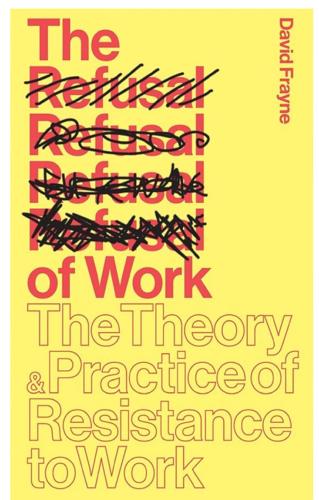
The Refusal of Work: The Theory and Practice of Resistance to Work
by
David Frayne
Published 15 Nov 2015
Wright, 206; White Collar, 52 mindlessness of work, 163 mini utopia, 142–7 minimum-wage jobs, 135 mobile phones, 72, 168, 170 Moir, Jan, 101–2 monasteries, 25 monotony, of everyday life, 210–11 moral principles, alternative, 122 moralisation of work, 16, 25, 103, 105, 191 morality: of work, 26; of non-workers, 207, 234 More, Thomas, 30; Utopia, 31–2 Morris, William, 30, 31, 32 multi-activity society, 143, 220, 222 music, popular, decline of, 173–4 mystery customers, 54 N National Insurance Act (1911), 28 necessary labour, distribution of, 95 need to work, 14, 111 needs: fulfilled by work, questioning of, 64; growth of, 91 ‘neo-proletariat’, 115–16 neoliberalism, 73, 219; moral fortification of work, 16 New Economics Foundation, 99, 116, 223 New Labour, 16, 103 non-compliance, acts of, 212 non-violent action, practice of, 1–23 non-work: as extension of work, 75, 82; experience of, 112; stigmatisation of, 197 see also shame, of non-work non-workers: audits and penalties for, 16; demonisation of, 97, 98–105; viewed with sense of pity, 201 see also stigmatisation, of non-workers not doing anything really, 194 O Offe, Claus, 16 Office, The, 212 Olin Wright, Erik, 30, 223 O’Mahoney, Hannah, 181 Operation Zissou, 144 Osborne, George, 99 outsourcing of domestic work, 67, 184–5 P Packard, Vance, The Hidden Persuaders, 85–6 paid employment: as sign of maturity and independence, 186; as symbol of adulthood, 198; established as norm, 191; fulfils psychological needs, 107; promotion of, 105; viewed as fundamental human need, 96–7; viewed as healthy state of being, 98, 106, 108, 109 panopticon, electronic, 60 part-time working, 123 payment, tied to working hours, 28 people with disabilities, 16, 104 personal costs of intensive work, 58 Petri, Elio, La classe operaia va in paradiso, 1, 164–5 philosophy, talking about, 143 piano tuning, as artistic exercise, 12 Pilhelm, Mats, 224 Pirsig, Robert M., Zen and the Art of Motorcycle Maintenance, 183 play, in work, 75 pleasures: alternative, 157–88; productive, 177–88; savoured, 172–7; troubled, 164–72 pointlessness in work, 129 political discussion on work, initiation of, 237 politics, against work, 8 polyvalent workers, 142 poor, the: new, 159–60; seen as unworthy of leisure, 96 poor-quality jobs, effects of, 108 post-industrial economy, 49–50 potentiality, endless, sense of, 77 poverty, 159; culturalisation of, 100; self-management of, 205; viewed as deserved result, 100 see also poor, the prefigurative politics, 208 presents, buying of, 186–7 Primark, 167 productive forces, development of, 36 productivity, 36, 39; defines status of persons, 191; growth of, 40, 84, 94; obsession with, 195 professionalism, expected of employees, 58 professions, age of, 186 profit, 44, 63 prostitution, 55–6; emotional, 55 Protestant ethic, 24–9 pro-work propaganda, 96 public amenities, withdrawal of, 92 public sector workers, strike action by, 102 Pullberg, Stanley, 130, 144 Puritanism, 27 Q quality of life, 108 R Rachel, a human resources officer, 127, 130, 171 reading see books, reading of ‘Rebellion Postponement’, 114 recuperation of workers, 69–70, 147 reduction of work, 28, 32, 66, 84, 93, 94; a source of uneasiness, 97 redundancy, as cause of distress, 109–10 refrains, 211–12, 214 refusal of work, 8 reification, concept of, 125 see also de-reification Reilly, Cait, 101–3 rent, 101 repairing things, 182, 228 resistance: battle over language of, 232; culture of, 209 resistance to work, 5, 7, 13, 29, 55, 97, 112–17, 118, 156, 210, 215, 216, 217; a matter of imagination and will, 158, 159; as collective project, 217; as self-preservation, 154; material limits to, 159; motives for, 122; necessity of, 147; obstacles to, 10; potentiality of, 227; risks of, 159; routes into, 131 ‘resources’, term used for people, 139 restlessness, experiences of, 175 Rhys, husband of Ffion, 177–8, 181, 183, 209 right to be lazy, 21, 23 rituals of society, commercialised, 186 role, use of term, 65 role-distancing, 212 routine work, 18 rubbish jobs, 131–42 Russell, Bertrand, 75, 78–9, 80, 111, 225; ‘In Praise of Idleness’, 11, 95–6 Ryle, Martin, 113 S Salecl, Renata, 65, 169 Samantha, a former attorney turned waitress, 120, 138–41, 161, 177, 187, 197–8, 199 sanctity of paid work, 16, 63, 65, 96, 233 Sarkozy, Nicolas, 3–4 satisfaction at second remove, 185 satisfying work, 5, 12, 30, 132 scarcity, problem of, 33 Schor, Juliet, 165 scroungers, 199, 202 self-care, 149, 150, 151 self-defined activities, 70 self-improvement, 219 self-production, 91, 92, 228; enjoyment of, 181-4 self-reliance, 182 sellable self, 77 Sennett, Richard, 51, 73 sense of self of workers, compromised, 54 service industries, 40, 50 Severe and Enduring Mental Health Problems, label, 152 sexuality, enjoyment of, 175–6 shame: as main tool of advertising, 171; associated with resistance to work, 10; of non-workers, 192, 202 Shipman, Tim, 102 shirkers, stereotype of, 154 see also skivers shopping: a troubled pleasure, 167; avoidance of, 170; compulsive, 171; mental calculations involved in, 165; patriotic, 89; pleasure of, short-lived, 170 sickness see illness simplification of life, 218 singing, 118 single parents, 16, 104, 108 skivers, 99, 101, 189 slavery, 24 sleep, 148; needed by workers, 147 slow food movement, 118, 176 smiling, 118 sociability, 137 social protection, 74 social work, as bureaucratic machine, 132 socialisation, 15, 126, 129 sociality of workers, capture of, 60 sociological imagination, 206 Soper, Kate, 89, 113, 116, 162–3, 168, 176, 187 Southwood, Ivor, 45, 104 spending, reduction of, 179 Spicer, André, 212–13 Stallings, Phil, 45–6 standardisation of labour processes, 133 stigma: definition of, 192; insulating oneself against, 216 stigmatisation, 203–4; of non-workers, 9, 105, 121, 199 stress, 131, 148, 236; coping with, 218 ‘strivers versus skivers’, 99, 101 Sturdy, Andrew, 59–61, 64 subordination, in work relations, 91 Sunray company, 59–60 supermarket, visits to, 167–8 surplus-labour, 147 surveillance cameras, 54 sweatshops, exploitation in, 61 Sweden, shorter working day in, 224 symptoms, 148 T taxation, corporate evasion of, 101 Taylor, Frederick, 48 Taylor, Laurie, 126, 127, 129, 210 Taylorism, 48, 61; emotional, 54 team, idea of, at work, 56–7, 58 technology, 33 see also Marx, views on technology television, 87; viewers, alleged suggestibility of, 86 Terkel, Studs, 13, 15; Working, 11–12, 45 Tesco, commodity varieties in, 169 Thatcher, Margaret, 181 Theroux, Louis, 55 thirty-five hour week, 68, 223–4 Thompson, E.
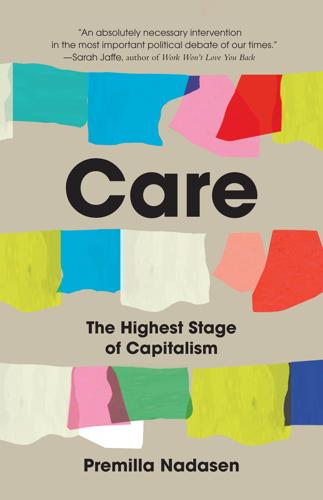
Care: The Highest Stage of Capitalism
by
Premilla Nadasen
Published 10 Oct 2023
Radical care initiatives are models of democratic practice and community engagement, practices that are often a first step to movement building and cultivating a commitment to long-term social transformation. Radical care is not only a survival strategy—it goes beyond care as social service or a “good deed”—and is outside the dominant individualist and profit-making structures. It is an example of prefigurative politics, which Harsha Walia defines as “envisioning and actualizing egalitarian social relations.”8 Although these models may seem small-scale in the context of an invasive care economy, they are in fact an indication, using a phrase that animated the World Social Forum, that “another world is possible.”
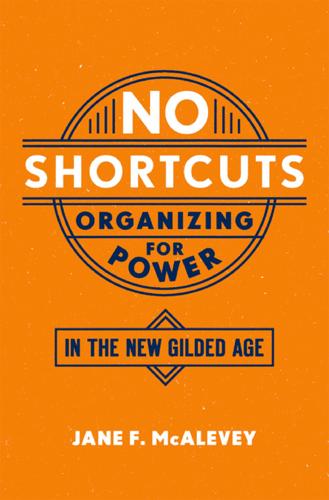
No Shortcuts: Organizing for Power in the New Gilded Age
by
Jane F. McAlevey
Published 14 Apr 2016
MRNY has adopted a highly collaborative organizational model that reflects exactly the kind of strategic capacity Marshall Ganz described at the United Farm Workers, with “leaders who take part in regular, open, and authoritative deliberation and are motivated by commitment to choices they participated in making and on which they have the autonomy to act.”10 MRNY also has a highly deliberative and participatory organizational style—referred to internally as a “high-touch” process. This is similar to Francesca Polletta’s analysis of participatory democracy and prefigurative politics.11 Polletta and MRNY emphasize the importance of process in strengthening internal solidarity and enhancing the political impact of social movements. Efforts to win and enforce progressive change, whether through the courts, the ballot box, negotiated union contracts, or legislative bodies, can only succeed in the long term if large numbers of ordinary people are participating at levels high enough to enable them to hold institutions accountable.
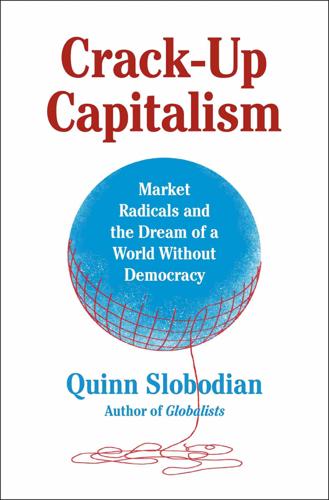
Crack-Up Capitalism: Market Radicals and the Dream of a World Without Democracy
by
Quinn Slobodian
Published 4 Apr 2023
If Thatcher’s government drew lessons from the economic dragons of the Far East, the “new urban left” of the GLC practiced a different kind of internationalism. They sought to create links between the recent immigrant communities in London with the older working class.53 The GLC saw the neighborhood as a place where small versions of the future could be made, what are sometimes called prefigurative politics. An early success came on Coin Street, across the Thames from the financial district of the City, where they were able to block the plans of a developer and claim the land for a community trust, given to local residents to develop in their own interests.54 The group organized clerical workers in the City of London and even mobilized to have the anachronistic medieval government that ruled the financial district abolished.55 The Docklands was another focus of their efforts.

From Counterculture to Cyberculture: Stewart Brand, the Whole Earth Network, and the Rise of Digital Utopianism
by
Fred Turner
Published 31 Aug 2006
SDS, “Port Huron Statement,” 166 – 67. 79. Rossinow, Politics of Authenticity, 162. 80. Sociologist Wini Breines has distinguished between two political modes within SDS, modes she calls “strategic” and “prefigurative.” Strategic politics represented the work of changing traditional political structures by means of activism; prefigurative politics denoted the desire on the part of many in SDS to live out and exemplify their political ideals. See Breines, Community and Organization in the New Left, 7. Gitlin, Sixties, 107; Greg Calvert, “The Beloved Community,” New Left Notes, November 25, 1966; quoted in Breines, Community and Organization in the New Left, 48. 81.